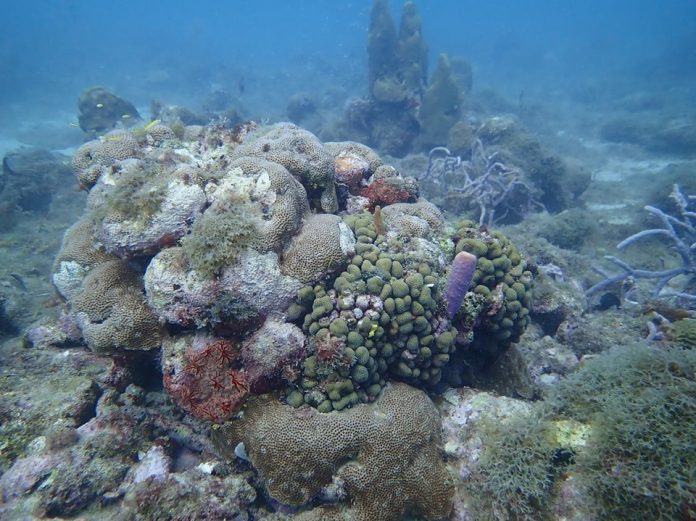(Oranjestad)—If you’ve been to the northern coast of Aruba already, you’ve probably noticed how the ground differs entirely from the sandy beaches on the southern part of the island. These hard surfaces, with sharp bumps and holes are actually fossilized coral reefs, of which its growth and changes can be traced back to the last glacial period.
On May 30 2023, geoscientists, Dr. Patrick Boyden from the Marum research faculty at the University of Bremen, Prof. dr. Alessio Rovere from the Ca’ Foscari University of Venice and Prof. dr. Gianfranco Scicchitano, from the University of Bari Aldo Moro, presented their research on these fossilized coral reefs at the University of Aruba. Their focus for their research included studying the health and formation patterns of these coral reefs, and to investigate how these reefs have responded and can respond to fluctuating sea levels or extreme weather, like hurricanes and tsunamis.
Through underwater and land surveillance, and 3D models of the reefs, they were able to narrow down when these formations started to take place. They were also able to track the fluctuation of sea levels during the past hundred or even thousands of years, and the effects that this fluctuation has had on the coral reefs of the windward side of Aruba.
These findings can certainly put things into perspective. The ground on which we have walked many times on the northern part of the island hold such rich history, history that dates back to a time that most of us cannot even imagine. As the scientists themselves have pointed out, these fossilized reefs on the windward side are truly an incredible and rare remnant of geological history, as they provide a clear view of how these reefs have formed.
This research is also important for the future of coral reefs on the island. By studying rising sea levels and climate impact on these coral reefs, we are able to take concrete action in protecting and preserve our coral reefs. So, if you are ever visiting one of the bocas or driving along the northern part of the island, please be conscious to help protect our natural historical remnant. Oh, and wear (coral-friendly) sunscreen!




















